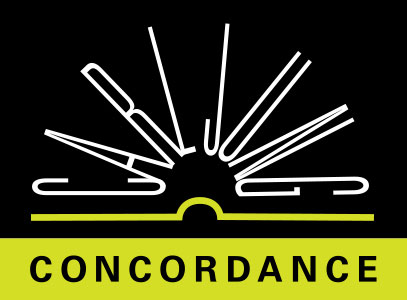Flood myths may be seen as cosmological versions of the alchemical operation of solutio where there is a cosmic catastrophe by flood (fig. 003.12) . In Hebrew myth it is Noah's flood; in Greek myth, the story of Deucalion and Pyrrha:
AOP Pg 067 (xx) FigNo003.12
The Flood
Doré, Bible Illustrations
THE FOUR ELEMENTS
According to an ancient idea each of the four elements in turn was to be an agent of world destruction. As reported by Dio Chrysostom, the story is as follows: “The Lord of the world rides in a chariot drawn by four horses which are sacred to Zeus, Hera, Poseidon, and Hestia respectively. In other words, the four horses are the four elements, fire, air, water, and earth. As a rule they are tractable, now and then, however, the first steed becomes restive and sets fire to the other three. This is the origin of the story of Phaethon told by the Greeks. Again it is the steed of Poseidon that becomes restive, and the drops of his sweat are sprinkled upon the other three. This again, is the source from which the Greeks derived their story of Deucalion's flood,” and likewise with the other two horses
AOP ¶ 0SUBLIMATES AND COAGULATES
This idea corresponds to the alchemical circulatio in which the material is to be repeatedly sublimated and coagulated, circling again and again through all the states of being until the Philosophers' Stone is created. The whole history of the world is thus seen as a vast alchemical process
AOP ¶ 0FLOOD MYTHS
The flood myths are quite instructive psychologically. God sends a destructive flood when the world has become wicked and degenerate. It is as though humanity must be reduced through solutio to its prima materia in order for it to be transformed to something better
AOP ¶ 0ORDEAL BY WATER
Another aspect of solutio is also demonstrated by the flood stories, namely, the theme of ordeal by water. Through this ordeal the godly men, those with authentic existence, remain intact while the wicked or inauthentic are dissolved. Psychologically this would mean that those aspects of the ego consciously related to Self withstand solutio
AOP ¶ 0In the myths, the threat of a world flood from the unconscious may have a salutary effect on a presumptuous ego and bring about an awareness of a need for a relation to the transpersonal. This state of mind is expressed in the Sixty-ninth Psalm (fig. 003.13) : Save me, O God; for the waters are come in unto my soul. I sink in deep mire, where there is no standing: I am come into deep waters, where the floods overflow me.Let not the water flood overflow me, neither let the deep swallow me up, and let not the pit shut her mouth upon me ( Psalm 69 : 1-2, 15, AV )
AOP ¶ 0AOP Pg 068 (e) FigNo003.13
“Save Me, O God; For the Waters Are Come in Unto My Soul”
Illustration for Psalm 69, The Visconti Hours. Florence, National Library
Flood dreams refer to solutio. They represent an activation of the unconscious that threatens to dissolve the established ego structure and reduce it to prima materia. Major life transitions are commonly solutio experiences
AOP ¶ 0Dreams of a great flood sometimes include the experience of being rescued by a divine or transpersonal agency. In the following dream it is evident that a fatal solutio was avoided by the discovery of Jungian psychology:
AOP ¶ 0Dream:
Caught in a Monstrous Sea
[The dreamer] was caught in a monstrous sea. Though she was a strong and practiced swimmer, her strength was nearly exhausted, and she knew she could not hold out much longer. Just then she saw ahead a square houseboat resembling the Noah's arks of her childhood. With a tremendous last effort she made for it, and just in time she reached its side, to be hauled up half fainting by none other the Dr. Jung, whom she had never even seen at the time
A middle-aged man going through the dissolution of a dependent relationship had this dream:
AOP ¶ 0Dream:
Flow of Humanity
I am at the center of a great city watching a vast stream of humanity pass byindividuals of every type and description. It's like the flow of a great river. I am fascinated
DREAM COMMENTARY
On awakening the dreamer thought of the doctrine of Heraclitus that “all things are in flux” (panta rhei). The dream is thus picturing the solutio aspect of existencelife as perpetual change and becoming. A painful personal experience is cast in an archetypal or general context and thereby made meaningful and even fascinating
AOP ¶ 0